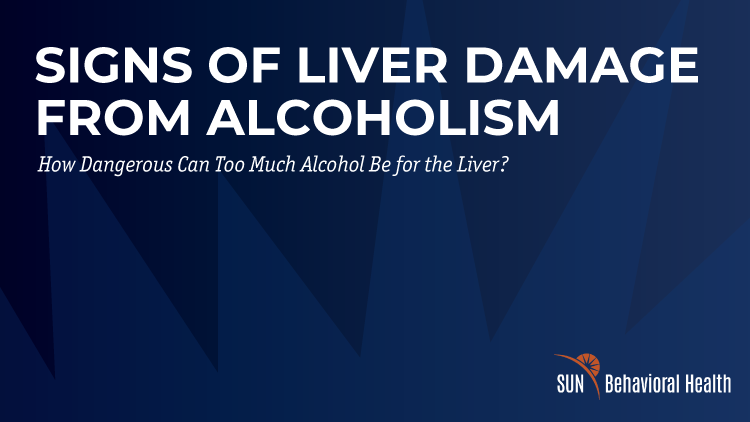Services

Your doctor just ran some routine blood tests. The results show abnormalities in your liver function, and your doctor asks you about your alcohol habits. He asks if you have had any symptoms, such as pain or fatigue. He mentions that these can be signs of liver damage from alcoholism. Still, more testing is needed before he can determine for sure. You wonder if damage has already happened from your alcohol use. Can it be reversed, or will the damage impact you for the rest of your life?
In 2021, 12.9% of people in Delaware reported binge drinking, while 5% reported heavy drinking. Most of the time, seeking recovery from alcohol use disorder is the best way to improve your liver’s overall health. However, this can be a difficult thing for many people. Even if your doctor tells you to seek treatment, it can be a big decision that requires time to think. You might want to seek treatment at night or on weekends when many facilities are closed. By the time it is more convenient, alcohol withdrawals convince you to return to use. At SUN Behavioral Health Delaware, we offer 24/7 crisis care that allows you to start your treatment when you decide.
Today, we are going to discuss the signs of liver damage from alcoholism.
People who have an alcohol use disorder can experience several alcohol side effects. One of those side effects is how alcohol impacts your liver. Your liver breaks down alcohol to remove it from the body. When you drink too much alcohol, it can create significant damage to your liver over time.
The first place alcohol goes to once swallowed is the stomach and the small intestine. At this point, it becomes absorbed by blood vessels and carried throughout the bloodstream. From the bloodstream, it makes its way to the liver. The liver can break down alcohol through enzymes, but it can only process 1 drink in an hour. Additional alcohol accumulates in the bloodstream. This extra alcohol can cause short-term side effects. Repeated experience of this accumulation can result in liver damage.

Most of the time, liver damage happens in the later stages of alcoholism. However, most of the time, prevention of liver damage is possible. There are 4 main stages of alcohol liver disease that a doctor might diagnose you with.
The earliest stage of alcohol liver disease, alcoholic fatty liver disease, does not have many symptoms. If you do have symptoms, it is typically only exhaustion or discomfort in the upper right side of your abdomen. Because it does not usually have symptoms, your doctor might only suspect that you have fatty liver disease if you receive abnormal results on liver tests.
Your doctor will look at your medical history, see if you have signs of an enlarged liver, and look for signs of jaundice. If you have alcoholic fatty liver disease, the best path to take is to stop drinking alcohol. The more alcohol you drink, the more inflamed and weakened your liver can get. While quitting your alcohol use can be easier said than done, you never have to do it alone.
The next stage of alcohol liver disease someone might experience is alcoholic hepatitis. This stage involves more inflammation and destroyed liver cells. It occurs when people have participated in heavy drinking for several years, though sometimes people who have consumed less will still get alcoholic hepatitis. This stage will typically have symptoms such as jaundice, loss of appetite, and belly tenderness. Someone might also have a fever, tiredness, and vomiting. These symptoms can lead to someone becoming malnourished because they don’t feel like eating and instead will drink alcohol for their calories.
Other symptoms might include kidney failure, buildup of toxins, and fluid in the belly, known as ascites. If you think you might have alcoholic hepatitis due to the symptoms, it is best to discuss your concerns with your doctor. Allowing it to go untreated can lead to worsening stages of liver disease. The best way to keep yourself safe from later stages is to stop your alcohol use. Treatment is ultimately the best plan of action to remain healthy.
With treatment and lifestyle changes, alcoholic fibrosis can bring healing. Often, alcoholic fibrosis is associated with alcoholic hepatitis. Alcoholic fibrosis is a more severe case, and it comes from early scarring in the liver. Symptoms might include fever, vomiting, and jaundice. People may also experience abdominal pain. Stopping your use of alcohol and receiving proper treatment is the best chance at recovery.
Alcoholic cirrhosis is the most severe stage of alcohol liver damage. It involves the most intense level of scarring and can be life-threatening. At this stage, it typically cannot be undone. Early detection can prevent further damage. Only in rare cases has it been reversed. Symptoms at this stage can typically include bruising, swelling in the legs and ankles, and fatigue. People will have jaundice and itchy skin. People might experience a loss of appetite followed by weight loss. Fluid will accumulate in the abdomen, and spider-like blood vessels may appear on the skin. Your palms will be red, and your fingernails may appear pale. Women may lose their periods not related to menopause, and men may have a loss of sex drive or testicular shrinkage. Confusion, drowsiness, and slurred speech are also common at this stage of alcohol liver damage. Having any of these symptoms is cause enough to bring up the possibility with your doctor. While it is rare to reverse cirrhosis when it is already here, not drinking alcohol can help prevent it from getting worse.
Long-term participation in excessive drinking, which involves binge drinking and heavy drinking, can lead to serious liver concerns, such as liver cancer or liver disease. Heavy drinking is defined by how many drinks per week you have. For men, the number is 15 or more, and for women, it is 8 or more. Binge drinking is how much you drink during a single occasion. That number is 5 for men, and for women, it is 4. Your liver can still experience the dangers of binge drinking even if it happens once. These dangers can include alcohol poisoning - a medical emergency resulting from high blood alcohol levels due to your liver not being able to keep up. If you witness someone experience alcohol poisoning, seek medical attention for them immediately.
A doctor will detect liver damage with a physical examination. They will order blood tests called liver function tests that look for liver disease. They might also order an imaging test such as an ultrasound, MRI, or CT scan. A biopsy will extract a tissue sample to test for liver damage.

While the thought of experiencing alcoholism withdrawal might make you less likely to want to seek treatment, participating in an alcohol detoxication can be the best thing that you can do for your liver. Treatment prevents further damage to your liver and allows you to live the life you had planned for yourself.
Located in Georgetown, SUN Behavioral Health Delaware solves unmet needs in our community. Seeking treatment can come with uncertainties and questions, especially when it comes to the level of care you will need, especially when it comes to the condition your liver is currently in. We offer no-cost care assessments that allow you to meet with a representative to determine the best care plan. For more information or to get started today, call us at 302-604-5600.
The four main stages of liver failure are fatty liver, hepatitis, fibrosis, and cirrhosis.
In most stages of alcohol damage, stopping your use of alcohol will allow your liver to recover.
Your liver will heal if you stop drinking only if you are in the early stages of liver damage. Once it reaches cirrhosis, it is more difficult to reverse the effects alcohol has had on your liver. Not drinking alcohol will only prevent further harm at that point.